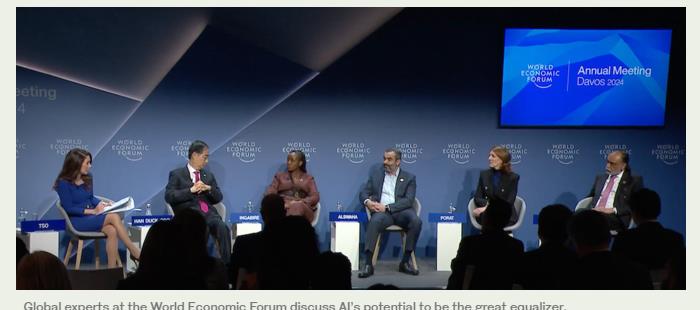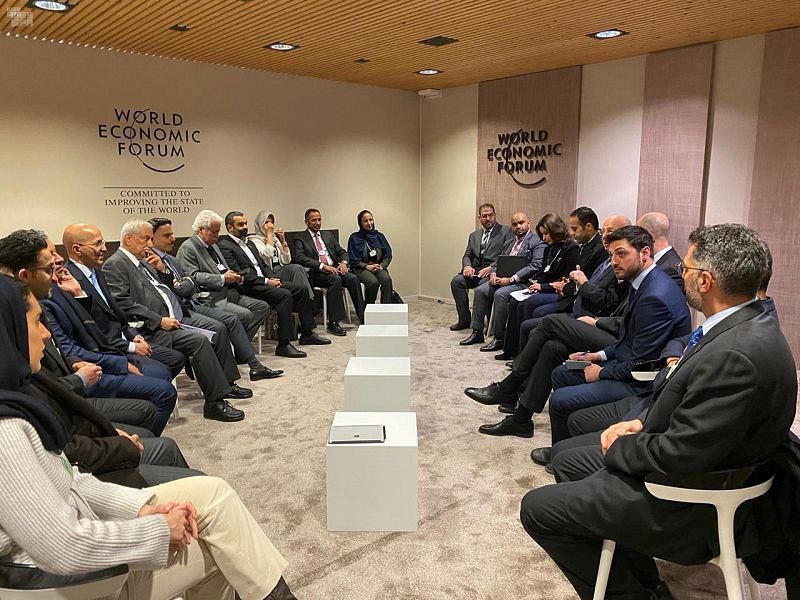
DAVOS: The Kingdom of Saudi Arabia has been consistent in its growth strategy in adopting a “build, partner and acquire strategy” that makes it “pro-innovation and pro-partnership,” said the country’s Minister of Communications and Information Technology Abdullah Al-Swaha at the World Economic Forum on Tuesday.
Speaking at a panel session — called “Artificial Intelligence: The Great Equalizer?” — Al-Swaha said that the Kingdom had “grown tremendously in terms of our clout, GPU and AI capacity” and attracted $6.2 billion since the launch of Vision 2030.
South Korea’s Prime Minister Han Duck-soo highlighted his country’s advances in AI with over 2,000 big and small companies currently working on customizing the applications of AI across industries like healthcare and electronic commerce, making it more usable for human beings.
He added that a big priority for South Korea was to make its AI literacy widely available both within the country and globally.
But digital adoption is still low in the Global South with Rwanda, for example, reaching out to the World Bank for financing to support digital adoption in the country.
Still, AI is more an opportunity than a challenge for the country, which launched its national AI policy and strategy last year, said Rwanda’s Minister of Information and Communications Technology and Innovation Paula Ingabire.
She pointed out that the Global South is more optimistic about AI adoption than the North, perhaps because it is home to a younger population.
She said: “They (the youth) are the ones that are building the solutions but are also going to be the consumers of many of these solutions.”
For Google, AI is not new and has been part of the company’s products for decades, said Ruth Porat, president and chief investment and financial officer at Google Inc.
She said: “What is so exciting today are the types of applications that can really transform lives and make such a difference,” referring to AI’s use in healthcare, agriculture, food security, and climate change.
While the panelists acknowledged AI’s potential to be an equalizer, with a few caveats, the UN Secretary-General’s Envoy on Technology Amandeep Singh Gill was cautious.
He said: “I think 2024 will see a lot more money being made from AI by a few companies, but the jury is still out on how and in what manner AI can change the direction of progress on the UN’s Sustainable Development Goals.”
Based on current trends, he added, AI would not be the great equalizer.
In order to get to that point, Gill said: “We will need much more deliberate effort ... We need to enlarge the opportunity space in 2024.”







